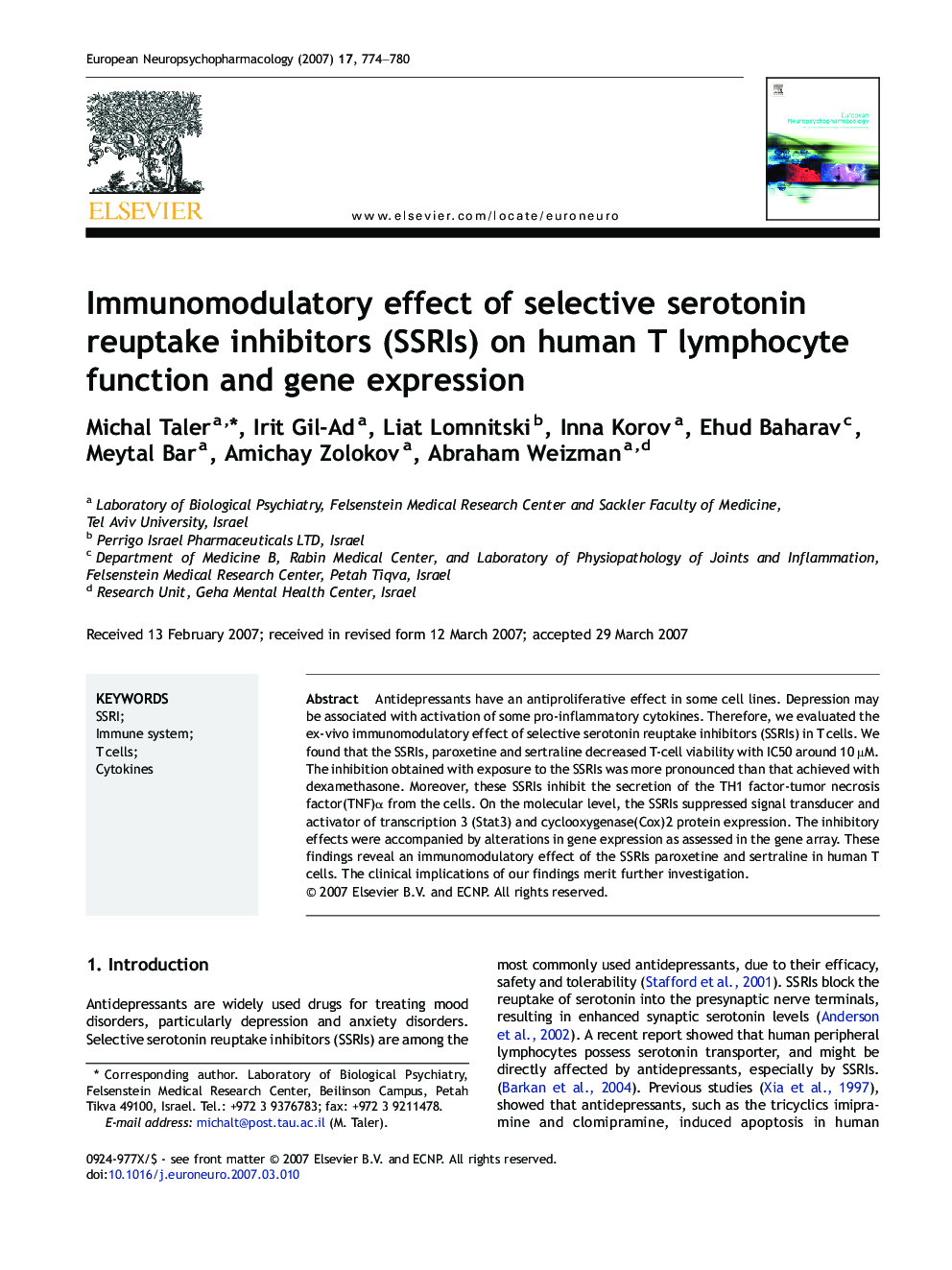| Article ID | Journal | Published Year | Pages | File Type |
|---|---|---|---|---|
| 321149 | European Neuropsychopharmacology | 2007 | 7 Pages |
Antidepressants have an antiproliferative effect in some cell lines. Depression may be associated with activation of some pro-inflammatory cytokines. Therefore, we evaluated the ex-vivo immunomodulatory effect of selective serotonin reuptake inhibitors (SSRIs) in T cells. We found that the SSRIs, paroxetine and sertraline decreased T-cell viability with IC50 around 10 μM. The inhibition obtained with exposure to the SSRIs was more pronounced than that achieved with dexamethasone. Moreover, these SSRIs inhibit the secretion of the TH1 factor-tumor necrosis factor(TNF)α from the cells. On the molecular level, the SSRIs suppressed signal transducer and activator of transcription 3 (Stat3) and cyclooxygenase(Cox)2 protein expression. The inhibitory effects were accompanied by alterations in gene expression as assessed in the gene array. These findings reveal an immunomodulatory effect of the SSRIs paroxetine and sertraline in human T cells. The clinical implications of our findings merit further investigation.
